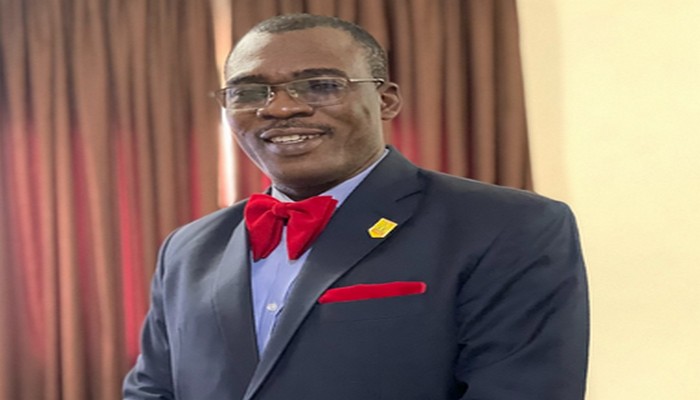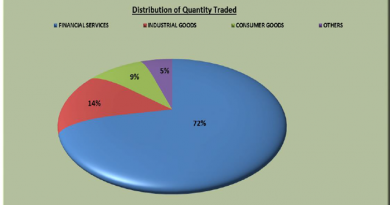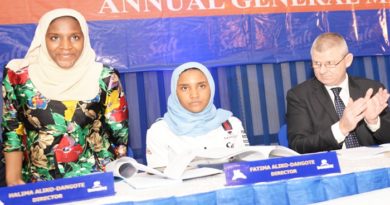CITN moves to promote nation’s development through taxation
The President, Chartered Institute of Taxation of Nigeria (CITN), Mr Adesina Adedayo, has said that Nigeria needs to effectively harness its tax revenue potentials in order to achieve sustainable development.
Adedayo made the observation at the 25th Annual Tax Conference (ATC) of the Institute recently held in Abuja.
The conference, which was held on Monday May 8 to 12, has the theme: “Nigeria of the Future: Achieving Sustainable Development Through Taxation”.
The CITN President decried that the country has not been effectively harnessing its tax revenue potentials, describing that as setback to achieving sustainable development for the economy.
He emphasised the need for fair and equitable tax systems that can promote sustainable development and reduce poverty.
According to him, for Nigeria to achieve sustainable development, there is urgent need to address issues that would promote effective and efficient utilisation of the tax revenue potentials.
“A simple analysis of the socio-economic environment of Nigeria will reveal that there is a fundamental gap between our developmental potentials and current realities. In the midst of insuficient revenue from crude oil earnings, fluctuating value of the Naira, rising debt burdens and increasing government’s expenditure, taxation has become the only “hope of the Nation.”
“However, it is apparent that the country has not effectively harnessed its tax revenue potentials. It is also general knowledge that Nigeria’s Tax to GDP ratio is considered a serious cause for concern when compared to others within Africa. Although there are several arguments on the subject, the fact still remains that it is below the OECD Average of 35.5%”, he said.
Mr Mohamed Yahya, Country Resident Representative, United Nations Development Programme (UNDP) Nigeria, said that taxes were potent instrument that would assist Nigeria in achieving the Sustainable Development Goals (SDGs).
Yahya said that the 2030 Agenda for Sustainable Development provides a shared blueprint for peace and prosperity for people and the planet.
According to him, it is a universal call to action to end poverty, protect the planet, and ensure that people around the world enjoy peace and prosperity by 2030.
“Achieving these goals requires significant and well-targeted public and private investments. However, securing resources remain a major challenge for developing countries. This is further compounded by the multiple global crises, such as the Ukraine-Russia war, a recovering world from the after-shocks from a global pandemic, insecurity and climate change, amongst others.
“Nigeria is estimated to have a financing gap of ₦125 trillion (over $300 billion) to achieve the SDGs by 2030,” he said.
Yahya said that the current global challenges have sparked a rethinking of the tax system.
He said this includes the OECD/G20 Inclusive Framework on Base Erosion and Profit Shifting (BEPS) and the UN resolution on “Promotion of Inclusive and Effective Tax Cooperation” (A/RES/77/244), submitted by Nigeria on behalf of the 54-member African group of states.
“This resolution “recognises the timeliness and importance of strengthening international tax cooperation to make it fully inclusive and more effective.”
“It also specifies the need to “begin intergovernmental discussions on ways to strengthen the inclusiveness and effectiveness of international tax cooperation.
“Although an arduous task, it is our belief that Nigeria can address the SDGs through taxation by adopting measures to improve and modify behaviours to accomplish targeted development results,” Yahya said.
Earlier, Mrs Ruth Arokoyo, Chairman, ATC Committee, identified taxation as a scal tool of government to generate predictable and stable stream of revenues to nance government spending compared to the unstable nature of the stream of revenue from crude oil.
According to her, domestic revenue mobilisation is crucial if governments are to provide the needed services like water, energy, education, and other basic infrastructure, saying that research has indicated that at least 15 per cent of the Gross Domestic Product (GDP) is necessary to nance these basic services.
“The 25th Annual Tax Conference has been packaged to dialogue on ways to achieve sustainable development for Nigeria through taxation.
“A major input this year is the collaboration by with UNDP; which is the agency of the United Nations (UN) tasked with helping countries eliminate poverty and achieve sustainable economic growth and human development; hence this collaboration as we discuss achieving sustainable development of our country, Nigeria.
“The world’s population is growing at a faster rate than the resources available to provide for the growing population.
“Presently, Nigeria’s population is estimated to be about 200 million persons and it is expected to grow to 377 million by 2050. This year’s conference is out to discuss how we can use taxation to promote investment, job creation, and economic growth that will take care of this projected increase in population,” Arokoyo said.
Also speaking, Dr Joshua Omuya, Former Member, Board of Directors, Central Bank of Nigeria, decried that taxation as a strategic and sustainable instrument for financing government expenditure has not yielded the required quantum of revenue needed to provide adequate public goods and services to over 200 million Nigerians.
He explained that Nigeria like many other developing countries is confronted with inadequate domestic resource mobilisation (DRM) to provide basic services, adding that Tax to GDP ratio in Nigeria is estimated at 8%, the lowest among its peers.
He said, “Whatever the prevailing ideology or political colour of a particular government, it must steadily expand a whole host of services as a prerequisite for the country’s development.
“These services must be financed out of government revenue. Besides meeting these needs, taxes provide the most appropriate instruments for increasing savings for capital formation out of domestic sources”.
The conference featured different activities ranging from presentations, plenary sessions, hospitality night and other side attractions aimed at promoting the taxation system of the country as well as educating the participants and tax professionals.




